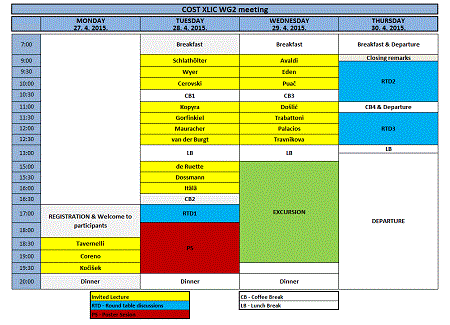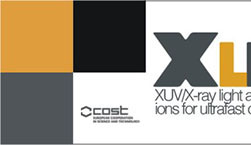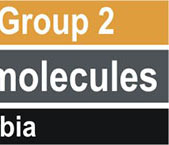
Topics & Program
Meeting Schedule | (detailed program) |
 |
The second work group of XLIC cost action studes the stability of highly excited and highly charged molecules in the gas phase and explores their reactivity: interaction with other molecules and formation of new species through isomerization and/or fragmentation.
In particular the following topics are of interest to this second WG:
– Selective fragmentation of biomolecular systems of increasing complexity (from isolated molecules to clusters, from the building blocks of DNA/RNA molecules to nucleotides) with soft X-ray and heavy ion studied via multicoincidence techniques
– Development of methods and experiments to evaluate the energy deposited in the molecule when excited or ionized through the interaction with swift ions.
– Stability and reactivity of nano-solvated systems vs isolated charged molecules. Most of the investigations concerning the ionization and fragmentation of biologically relevant molecular systems are performed with isolated molecules in the gas phase. To probe the effect of the chemical environment on the behaviour of small biomolecules under irradiation it is necessary to embed the molecule in a cluster, for instance of water molecules. The surrounding molecules allow for a re-distribution of the excess energy and of the charge within the cluster, changing its stability. Also by varying this state or the “partners” in the aggregate, one may selectively produce well-determined fragments. The challenge is to observe these systems experimentally and to treat very complex dynamics in which many degrees of freedom have to be considered and where fast reactions as proton transfer occurs.
– Dynamics of different relaxation processes, reflecting energy and charge flow processes in complex systems that can imply a vast number of relaxation pathways, Highly charged molecules and clusters can be stable or metastable and can undergo structural reorganization reactions before fragmentation. Ion-induced chemical reactions can be very fast processes (in the order of femtoseconds) and play an important role in processes as radiation damage or hadrontherapy.



